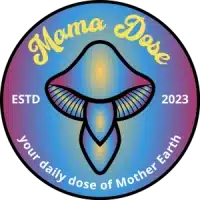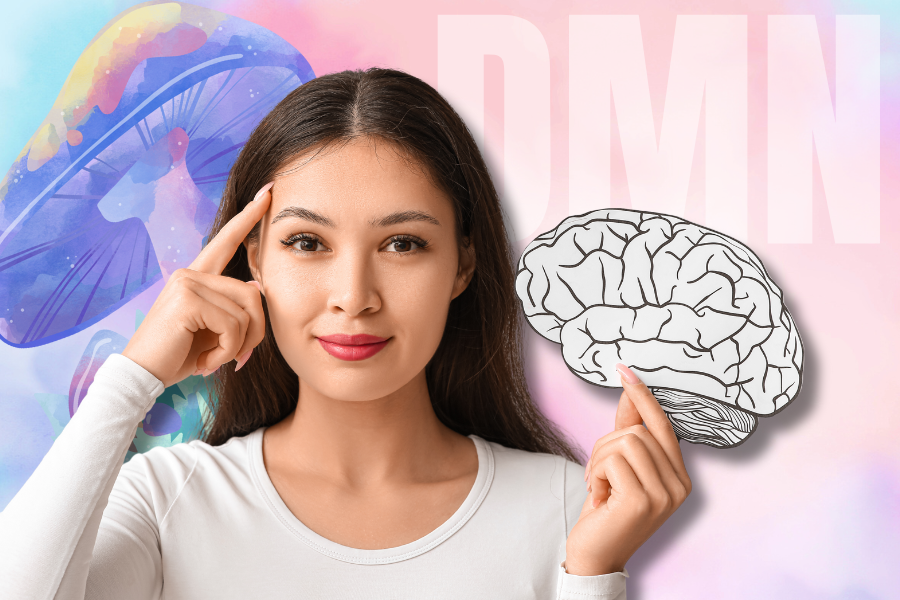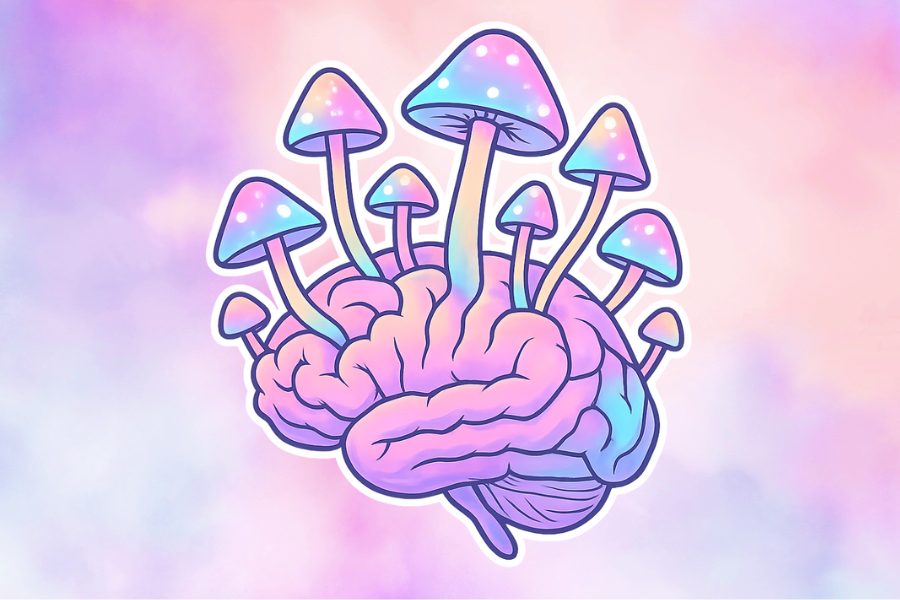

Table of Contents
Toggle
You know that little voice in your head that seems to have a permanent backstage pass to your thoughts? The one that points out every mistake, overanalyzes your words, and reruns moments you’d rather forget like a broken record?
That’s part of what neuroscientists call the Default Mode Network, or DMN. It’s not inherently evil; in fact, it’s crucial to who you are. It helps you plan your day, reflect on past experiences, and navigate social interactions. But when it becomes overactive or rigid, it traps you in loops of rumination, worry, or self-doubt.
For some, this inner critic is just a nuisance. For others, it’s a constant source of anxiety, depression, or creative block. It’s the mental equivalent of an overbearing conductor insisting every instrument play in perfect unison, leaving little room for improvisation. And while therapy, mindfulness, and meditation can help quiet it, there’s another tool that researchers have been exploring with growing fascination: psilocybin.
The DMN is a network of interconnected brain regions that are active when you are not focused on the outside world. When your mind wanders, when you daydream, or when you reflect on yourself and your relationships, the DMN is at work. It encompasses areas like the medial prefrontal cortex, which is involved in thinking about yourself and your social world; the posterior cingulate cortex, responsible for memory and emotional processing; and the precuneus, which helps you visualize and maintain a sense of self. Even the angular gyrus, which contributes to spatial awareness and comprehension, is part of this network.
In everyday life, the DMN provides stability. It keeps memories coherent, helps you imagine the future, and gives you a sense of personal identity. But when it becomes hyperactive, it can dominate your thoughts. You replay mistakes endlessly, second-guess decisions, and imagine worst-case scenarios with alarming clarity. Your inner critic becomes louder than your inner friend.
Like many other psychedelics, psilocybin has a unique ability to influence the DMN. Contrary to popular myth, it does not simply “turn off” the ego or annihilate the sense of self. That is an oversimplification. Neuroscience shows that psilocybin temporarily disrupts the usual patterns of activity and connectivity within the DMN, particularly in regions like the medial prefrontal cortex and posterior cingulate cortex. At the same time, it enhances communication between areas of the brain that normally do not interact. Psilocybin allows the brain to step out of its rigid patterns, creating space for new thoughts, new connections, and, perhaps most importantly, new perspectives on oneself.

Robin Carhart-Harris and colleagues at Imperial College London developed what they call the “Entropic Brain” hypothesis to explain these effects. In a typical state of consciousness, the DMN maintains low entropy, meaning thoughts and networks are highly ordered and predictable. This organization is crucial for daily function, but it can also reinforce unhelpful patterns when overactive. Psilocybin increases entropy in the brain. Neural activity becomes less constrained, more fluid, and more chaotic.
This heightened flexibility explains many of the experiences people report during psychedelic sessions. Emotional responses become more intense or nuanced, sensory perceptions can intertwine in strange ways, and the sense of self loosens without disappearing entirely. The rigid loops of the inner critic are disrupted, offering a temporary reprieve from the constant self-evaluation that the DMN often enforces.
The therapeutic potential of this process is profound. In cases of depression or anxiety, the DMN can become trapped in repetitive negative cycles. The brain over-focuses on past mistakes or imagined future failures, reinforcing feelings of helplessness or fear. Psilocybin doesn’t destroy the DMN. It doesn’t erase identity. What it does is interrupt these loops, temporarily loosening the network’s grip. This creates a window of opportunity. Without the usual constraints, new neural connections can form, allowing for novel insights and emotional breakthroughs
While psychedelics can accelerate this process, they are not the only path to quieting the inner critic. Meditation, flow states, and focused creative work can also reduce DMN activity and promote similar mental flexibility. Experienced meditators, for example, exhibit lower DMN activity even when not actively meditating. Athletes, musicians, and artists often report losing themselves in their craft, experiencing a state where self-conscious thoughts recede and fluidity takes over.
Psilocybin acts as a shortcut, a chemical key that temporarily opens doors within the brain that might otherwise take years of practice to unlock. But the principles at play, which are disrupting habitual thought patterns, increasing neural flexibility, and fostering novel connections, are universal.
There are a few myths worth debunking. First, the DMN is not inherently bad. Its overactivity can contribute to mental health struggles, but a healthy DMN is essential for coherent identity, memory, and decision-making. Psychedelics don’t aim to erase the DMN. They gently disrupt its rigidity to allow the brain to reset.
Second, psychedelics are not the only way to influence the DMN. Meditation, flow states, and sustained creative work can produce similar changes over time. Psychedelics just offer a faster, more pronounced effect. And finally, ego dissolution is not the ultimate goal. The point isn’t to destroy the self but to cultivate flexibility, reflection, and novel connections that can inform lasting psychological growth.

Look at it as a window of opportunity. When the DMN relaxes under the influence of psilocybin, it offers something rare: perspective. Thoughts and emotions that once felt suffocating can be observed without immediate attachment. Patterns of self-criticism loosen, opening space for self-compassion and creativity. People often describe it as stepping outside of themselves for a moment, seeing the inner workings of their mind as if through a window, and realizing that nothing is permanent. This is why psychedelic-assisted therapy shows such promise. By temporarily reorganizing the brain’s networks, psilocybin allows individuals to explore and understand their own minds in ways that can be difficult, if not impossible, in ordinary states of consciousness. It’s a tool for insight, not a magic eraser.
Psilocybin doesn’t turn off the brain. It doesn’t destroy the self or silence the DMN permanently. What it does is something far more subtle and beautiful. It loosens rigid thought patterns, quiets the inner critic, and allows previously separate parts of the brain to communicate in novel ways. It gives the mind space to explore, reorganize, and discover fresh perspectives. The magic lies not in obliteration but in reorganization. By understanding how the DMN operates, and how psychedelics interact with it, we gain insight into our own mental architecture. We learn that the inner critic is not invincible, that our thoughts are not chains, and that with the right tools, even temporary chemical ones, we can create room for creativity, self-compassion, and psychological growth.
In the end, the goal is not to annihilate the ego but to understand it better. Psilocybin is a guide, a flashlight, a key. It shows us that the mind is not a cage but a landscape, vast and full of hidden paths. And once those paths open up, even just a little, the voice of the inner critic starts to soften, replaced by something far more interesting: curiosity, insight, and a clearer view of what it means to be human.
Invite your friends and earn a discount on your next purchase. Your friend also earns a discount! Get started now, by sharing your referral link with your friends.
This item is currently out of stock!
By adding it to your cart, you confirm a backorder purchase, and we will ship it as soon as it becomes available.